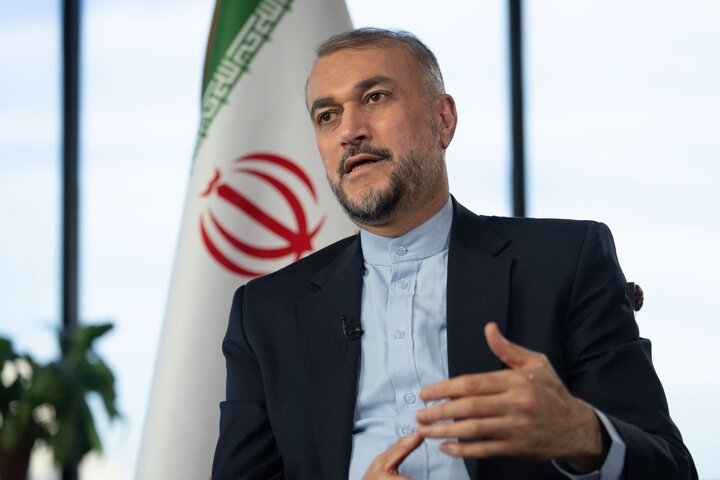Iran (IMNA) - He announced his upcoming visit to Pakistan to address and resolve the recent issues between the two countries. Emphasizing the significance of maintaining strong regional relationships, the minister stressed the need to prioritize security in order to safeguard the interests of both nations.
Iran Holds Constructive Talks with Pakistan and Iraq to Address Terrorism Threats in the Region
Iran's Deputy Foreign Minister, Abbas Amir-Abdollahian, has expressed concerns over recent terrorist activities in the Kurdistan Region of Iraq and Pakistan's Balochistan province. In an effort to safeguard the security of Iran, its borders, and the wider region, Iran engaged in productive discussions with Pakistani and Iraqi officials. The talks primarily aimed at establishing a joint understanding and finding political solutions to the challenges faced in Balochistan and Kurdistan. In line with these efforts, Amir-Abdollahian announced his upcoming visit to Pakistan, while Ali Akbar Ahmadian, Secretary of Iran's Supreme National Security Council (SNSC), is scheduled to travel to Iraq.
Iran's IRGC Conducts Missile Strikes on Israeli Spy Base in Iraqi Kurdistan and Attacks Jaish ul-Adl Bases in Pakistan
Iran's Islamic Revolution Guards Corps (IRGC) recently launched missile strikes on an Israeli spy base located in the Iraqi Kurdistan Region. Simultaneously, the elite military force carried out drone and missile attacks on two bases belonging to the Jaish ul-Adl terrorist group in Pakistan.
These actions highlight Iran's assertiveness in the region and its determination to respond to perceived threats. The IRGC's precision strikes demonstrate their capability to target specific locations accurately.
In addition, Iranian Deputy Foreign Minister Hossein Amir-Abdollahian described the crisis in the Gaza Strip as a "benchmark" of egalitarian and humanitarian slogans in the current century. He condemned the Israeli regime for committing war crimes against the people of Gaza, including murders, massacres, forced displacement, and genocide. This ongoing crisis has drawn international attention and calls for immediate action to address the plight of the Gazan population.
International Community Fails to Halt Israeli Aggression in Gaza as Palestinian Death Toll Rises
In light of the recent conflict between Israel and Hamas, questions arise about the effectiveness of international organizations in resolving the Palestinian crisis. Despite ongoing atrocities against the Palestinian people, the international community has been unable to bring an end to the Israeli aggression in Gaza.
Over the course of 114 days, the Tel Aviv regime's genocidal war has resulted in the deaths of at least 26,422 Palestinians, with the majority being women and children. Additionally, 65,087 others have been injured in the conflict.
These alarming figures call into question the efficacy of multilateralism, joint viewpoints, and global action in addressing the Palestinian crisis. As the situation continues to worsen, freedom-seeking individuals and leaders must reflect on the achievements, or lack thereof, of international organizations in resolving this long-standing issue.


Your Comment